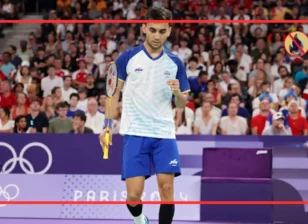What Is The Minimum wage in France 2023?
In France, the year 2023 heralds pivotal changes in the realm of labour as the nation witnesses an augmented statutory framework in the form of the minimum wage, commonly known as SMIC. Effective from May 1, 2023, the monthly minimum wage stands at a notable €1,747.20, while the hourly wage is fixed at €11.52. This wage increase seeks to address income disparities and bolster the standard of living for workers.
On the other hand, the framework includes a variety of classifications, including apprentice age groups (16–17, 18–20, 21–25), professionalisation contracts (20 and under, 21–25), and designations for young workers, apprenticeship agreements, and part-time employees, all of which have particular compensation implications. The pay policy is significantly shaped by the 35-hour legal work week, which is an important aspect of the French labour market. In addition, strict government enforcement protocols guarantee adherence, highlighting the importance of the government-mandated minimum wage, with sanctions levied on firms who fail to comply.
Historical Context of Minimum Wage in France
The necessity to ensure social fairness and restore the economy following World War II established the groundwork for labour reforms, which led to France enacting minimum wage laws. SMIC’s inception in 1950 was a critical turning point for the defence of workers’ rights and the stability of the economy. Since then, the minimum wage has been frequently adjusted by the French government to reflect changes in the labour market and the demands of the workers.
Minimum Wage Increase in 2023
As of May 1, 2023, the statutory minimum wage in France stands at €1,747.20 per month and €11.52 per hour. This adjustment represents a pivotal step in addressing the challenges posed by inflation and the rising costs of living. The incremental increase aims to ensure that workers can sustain a decent standard of living and cope with the economic pressures of contemporary society.
Understanding Minimum Wage Categories
1. Apprentice Categories:
● 16-17 Years (1st, 2nd, 3rd Year): Apprentices in this age group undergo a structured learning program, combining academic education with practical work experience. Their wages are governed by specific provisions tailored to their age and learning level.
● 18-20 Years (1st, 2nd, 3rd Year): This category encompasses apprentices transitioning into young adulthood, with wage considerations catering to their educational progress and work proficiency.
● 21-25 Years (1st, 2nd, 3rd Year): For apprentices in this age bracket, the minimum wage framework accounts for their developmental stage, emphasising the importance of skill acquisition and professional growth.
2. Professionalisation Contract
● 20 Years and Under, 21-25 Years: The professionalisation contract scheme targets individuals within specific age groups, providing them with opportunities to gain practical skills and experience. The associated minimum wage structure is designed to facilitate their professional development while balancing their financial stability.
3. Special Considerations for Different Worker Categories
● Young Workers Under 17 Years Old: Provisions for this group prioritise their educational commitments while ensuring they receive fair compensation for their contributions to the workforce.
● Apprenticeship Contracts for Young Students: This framework aims to integrate education and work, fostering a conducive environment for skill enhancement and career preparation among young individuals.
● Part-time Workers: The minimum wage parameters for part-time workers take into account their reduced working hours, ensuring that they receive proportional remuneration based on their contributions.
Government-Mandated Minimum Wage and Its Enforcement
The government of France mandates the implementation of the statutory minimum wage, emphasising its crucial role in safeguarding the rights of workers and promoting social equality. Non-compliance with the minimum wage regulations can lead to severe repercussions for employers, including fines and legal sanctions. Such stringent measures underscore the government’s commitment to upholding labour standards and fostering a conducive environment for fair employment practices.
Conclusion
The minimum wage framework in France embodies the nation’s dedication to ensuring equitable compensation for its workforce, with provisions catering to different segments of the labour market. The 2023 adjustment reflects the government’s proactive stance in addressing economic challenges and fostering a sustainable environment for both employers and employees. As the French economy continues to evolve, the minimum wage remains a cornerstone in fostering social justice and sustainable economic growth, emphasising the crucial role of fair remuneration in building a resilient and inclusive society.





